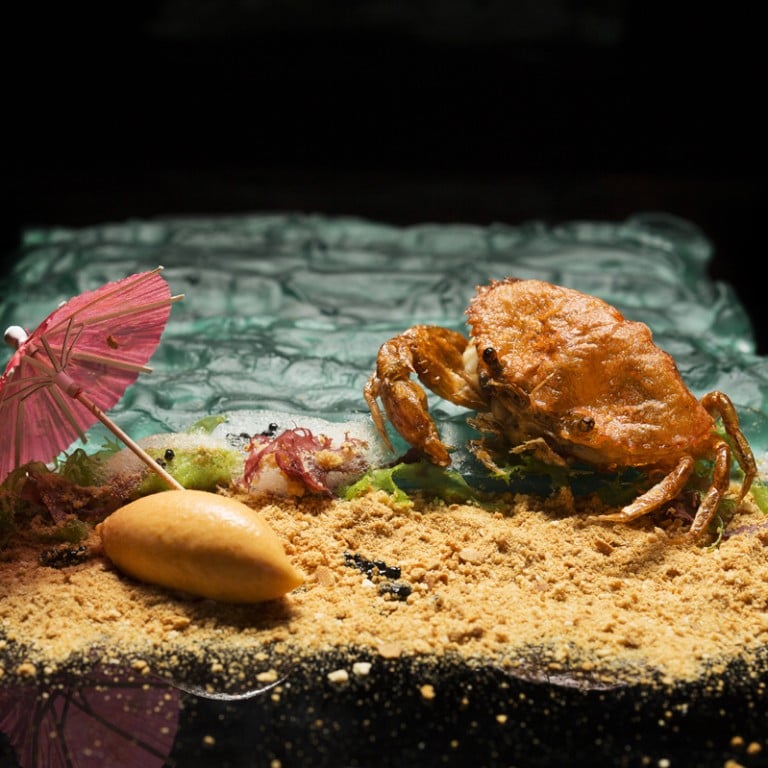Refined Asian cuisines are gaining popularity around the world

Inspiration from Asian chefs is catching on in the international gastronomic scene, writes Evelyn Chen
Gaggan Anand has just presented me with a plate showcasing a black, truffle-like creation. "Can you guess what's in it?" he asks. "It's a signature dish from my restaurant in Bangkok … it's called charcoal." Of course it is.
Dubbed the "world's best Indian chef", Anand is riding the wave of the renaissance in Asian chefs, a trend that coincided - whether by chance or not - with the inauguration of Asia's 50 Best Restaurants list in 2013.
"Asian chefs are drawing more attention around the world," says Anand, whose eponymous restaurant Gaggan topped San Pellegrino Asia's 50 Best Restaurants Awards list in March this year, before being ranked 10th at the San Pellegrino World's 50 Best Restaurants Awards ceremony in London this June. "This has led to a rise in confidence in Asian chefs and/or food in the fine dining arena."

The former hotel chef cut his teeth at El Bulli lab before returning to Bangkok to introduce his progressive style of Indian cuisine, and he was briefly in Singapore for a pop-up dinner at Spanish-Peruvian eatery, Ola Cocina Del Mar.
With the spotlight shining brightly on Asia, more chefs such as Calcutta-born Anand are basking in the glory. Fed by their newfound prominence, they have been offered opportunities that go far beyond the four walls of their kitchens to include TV appearances, invitations to cook at pop-up events overseas and to share culinary techniques at international food festivals. Like Anand, Andre Chiang of Restaurant Andre (No 5 on Asia's 50 Best 2015) jet-sets globally for collaborative dinners. His travels have brought him to cook at Attica (Australia), Benu (United States) and Quintessence (Japan), among many others. Of late, the Taiwan-born, French-trained chef has also been invited to speak at culinary conferences. In April this year, Chiang was a guest speaker at Madrid Fusion's first Asian edition held in Manila. Six months later, he graced the stage again at San Sebastian Gastronomika and Food on the Edge culinary symposiums held in Europe, where he spoke about "Jus des idees", his restaurant project in which he introduces fermented juices prepped with fruits and vegetables - such as Ubi madu (sweet honey potato), starfruit and mandarin plums - as an alternative to wine pairings.

"Asia has a very long history of fermentation but it's been forgotten. I would like to pick it up again and show the world how far we can take this traditional preserving technique," Chiang said to a packed audience comprising many of Spain's top chefs - including Albert Adria - at Kursaal, where the 2015 edition of San Sebastian Gastronomika was held in October.
Chiang was one of more than 10 chefs from Singapore, plus a small clutch from Hong Kong, including Jowett Yu of Ho Lee Fook and Yau Tim Lai of Tim's Kitchen, who took to the stage to spread the word about their heritage, culture, cuisine and techniques. It was the first time in the 17-year history of the Spanish gastronomic conference that a group of non-Japanese, Asian chefs was making a collective appearance on such a big scale.
"Singapore and Hong Kong are Asian cities that reflect both tradition and the forces of the future," says Roser Torres, general manager of San Sebastian Gastronomika. "We want to showcase the techniques of these up-and-coming Asian cities to enrich the European chefs and, at the same time, create synergies." The movement is gaining in momentum and popularity, with top restaurants in Spain quickly picking up on the trend and launching collaborative dinners. Azurmendi Restaurante, for example, brought in Andre Chiang to work with Eneko Atxo and Ricard Camarena.






